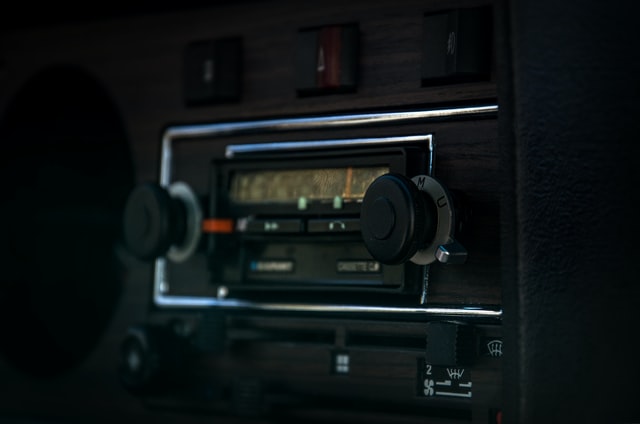Introduction to Amateur Radio
- What is Amateur Radio
- What Hams do with Amateur Radio
- How to Become a Radio Amateur
- Who Issues Amateur Radio Licence in India?
- Subjects of Exam and Detailed Syllabus
- What are the Study Materials Required
- Where to Take Ham Radio Licence Examinations
- Address of Wireless Monitoring Stations in India
- The Exam Fee
- Schedule of Examinations
- Building Your First Radio
- What are the Benefits for Students by Joining Amateur Hobby
- Amateur Radio Popular Frequencies/Bands
What is Amateur Radio
Amateur radio is a community of people that use radio transmitters and receivers to communicate with other Amateur radio operators. If you were to ask a dozen different amateurs what ham radio meant to them chances are you would get 12 different answers. Amateur radio operators are often called ham radio operators or simply "hams" and frequently the public is more familiar with this term than with the legal term Radio Amateur. The source of this nickname is for all practical purposes lost from the beginning.
Amateur (HAM) Radio is truly a hobby but often one that makes a difference especially in emergency or disaster situations. It is an activity of Self Learning, Inter-Communication & Technical Investigation carried on between Amateur Radio Operators. Amateurs talk to local friends over the radio waves using a hand-held transceiver, communicating digitally with packet radio to exchange personal messages or vital information in an emergency, talking to other hams anywhere in the world, or engaging in contests with other Radio Amateurs over the airwaves there is something for everyone.
There are over Lakh people all over the world who pursue this activity in their free time.
What Hams do with Amateur Radio
- QRP - Communicating with "very low power" is a challenge that many hams enjoy. QRP is usually practiced on the HF bands
- HF radio - Hams can talk to other hams in literally any part of the globe using HF radios
- VHF (2 meters) or UHF (70 cm.) transceivers hams enjoy extremely reliable communications within their local community. You can extend your VHF range up to 50 miles or more by transmitting through a local repeater.
- DXing. DX means distance communication and with the right equipment worldwide communication on the HF bands (10 through 160 meters) is a regular possibility.
- Emergency and other volunteer services - Floods, landslides, earthquakes, Cyclones, Accidents (Rail / Road / Air). Whenever "normal" communications go out, hams are ready to use their radios to provide emergency communication services to their communities
- Technical experimenting. Hams come from all walks of life ranging from technicians to engineers, teachers to scientists, and students to retirees. For many of them the attraction to the hobby is to build their own equipment whether it is just a simple antenna, something as complex as a transmitter, or an interface between their radio and a computer.
- Contesting. Contesting is often called the "sport" of ham radio. Almost every all the time there is some form of amateur radio contest. Hams get on the air and compete to see who can make the most contacts in a limited period of time.
- Talk to an astronaut. Yes, it is really possible. Space stations do have ham radio equipment and licenced ham astronauts take the time to make contacts with amateurs on earth. Hams also have satellites where you can bounce a signal to communicate with other hams on earth.
- Use digital communication. Connect a computer to your radio and install some software and you can be communicating digitally over the air. Some of these digital modes can be more effective in marginal transmission conditions and some even sport error free transmission.
- Internet communication. Using some of the latest technologies hams can supplement a modest station with Internet connections. Using features such as URL or IRLP on a local repeater a ham in Toronto can talk to one in Vancouver or even Australia using a simple hand-held transceiver
- Amateur television - It's just like real television because it is real television.
- Slow Scan TV - Send pictures around the world for little or no cost.
- Contests - You can put your radio operating skills up against other hams and teams of hams.
- Satellite communications - Hams operate using their own satellites for world wide communication using Walkie-Talkies.... They are easy to use too.
How to Become a Radio Amateur
Amateur Radio Operators have to qualify in an examination conducted by Ministry of Communications, Government of India and obtain licence for operating / possessing a Radio Station. Any individual above the age of 12 is permitted to appear for Amateur Station Operator Licence Examination and No Educational qualification is prescribed. It takes just two months (say two hours a day training) to become eligible for the examination. One should qualify a simple test conducted in three subjects namely I) Morse Code (Transmission & Reception) ii) Communication Procedure iii) Basic Electronics.
The Officer-In-Charge, Wireless Monitoring Station, Dept. of Telecommunication under Ministry of Communication, Govt. of India is the authority for conducting these tests in their own town provided there are sufficient number of applicants. The licences are issued by Wireless Planning & Co-ordination Wing of DOT, Govt. of India after passing the test in any of the following grades:
- Restricted Grade (Formerly Grade II)
- General Grade (Formerly Grade I and Advanced)
The Morse Code of 8 words per minutes sending-receiving will make eligible to get General grade licence and no Morse code test for Restricted grade licence, see the differences between these licences in detail. Basic knowledge can be obtained by purchasing/downloading study manuals, books, and Morse Code training sofwatware or CDs from any of the amateur radio clubs.
-
Local clubs - For those that like a structured approach, many clubs organize meetings and classes to teach the basic skills of radio operation and prepare people for their ham radio licence test. At the end of the classes, a test is given. If you pass, you're a ham!
-
You can do it by yourself. Many books for beginners are available, some of them are below, for learning Morse code a few software are available such as Koch CW Trainer Software.
- ABC of Amateur Radio and Citizen Band (Rajesh Verma EFY Publications).
- A Comprehensive Guide Book for the Ham Radio Enthusiasts.
- Koch CW Trainer Software.
Once you are prepared, you can write examination, see Where to take Ham Radio Licence Examinations
Who Issues Amateur Radio Licence in India?
Every licenced Radio Amateur is given a call sign that is used to identify you and your location of licence. Each country that has Amateur Radio status is allocated a range of call signs by the International Telecommunications Union (ITU). Amateur Radio Licence in India are licenced by the Wireless Planning & Coordination wing of Ministry of Communications, Govt. of India and enjoy a far more privileges of radio operation than "CB" radio operators do.
In many countries special call sign allocations may be made to commemorate a special event. These special event call signs usually have an unusual prefix so that the station using the call will be easily recognized. For example the calls M2000A and 7S2000M were heard quite often commemorating the year 2000. CI3O was used in 1996 for the Charles Island DX pedition. Many of these special events also have unique QSL cards that are well worth the effort to make the contact and to send for the card.
With these privileges come responsibilities and rules for the operation of an amateur radio station. Specifically, there are a few things that hams are not allowed to do:
- Hams are not allowed to do anything with their radios that makes them money in way. Ham radio is a hobby.
- Ham radio operator cannot `broadcast' to the public. This means that ham radio transmissions are meant to be received by other ham radio operators. While a short-wave radios will allow you to listen to the ham radio bands, what you will hear is hams talking to other hams and not music or other radio programs of ‘general’ interest.
Within these (and other) guidelines, however, hams are empowered to do just about everything that government and private radio stations are allowed to do.
Subjects of Exam and Detailed Syllubus
The examination is conducted in the topics mention below:
- Elementary knowledge of Electronics
- Communication Procedure and
- Morse Code (No Morse code test for Restricted Grade)
What are the Study Materials Required
- Study Manual
- Morse code practice book
- Morse Key
- Exam application form
Where to Take Ham Radio (Amateur Radio) Licence Examinations
Once you are prepared to take the examination(s), you'll want to find out where to take the test. Tests are administered by Monitoring stations of Min. of communications throughout the country. A nominal fee is charged to cover the costs of the testing. There are several ways to locate a test session. If you know a local ham, ask him or her about local testing opportunities, or you can write the examinations at the monitoring stations. Find your nearest monitoring station address from below, and send your application.
Address of Monitoring Stations in India
Last updated Mar, 2021 (Courtesy V2JOS and NIAR)
You can write test in the following Monitoring stations, they are conducting exams in regular intervals. Send your application forms addressed to:
Engineer in Charge, Wireless Monitoring Station Govt. of India, Ministry of Communications, Department of Telecommunications,
| City | Address | Tel / Fax/Email |
|---|---|---|
| Ahmedabad | Opp. Jagat Park Society, Ghatlodiya, AHMEDABAD-380061, Gujarat. | Tel: 079-27603444 Fax: 079-27603011 |
| Ajmer | Kotra, Pushkar Road, AJMER-305004, Rajasthan. | Tel: 0145-2600641 Fax: 0145-2600593 |
| Bengaluru | II Floor, Channammanakere Telephone Exchange, II Cross, II Main, Vidyapeetha Road, Channammanakere, Achukatte, BENGALURU-560085, Karnataka. | Tel: 080-26690102 Fax: 080-26790300 wms_bgl@yahoo.in |
| Bhopal | Gehunkheda, Kolar Road, BHOPAL- 464042, Madhya Pradesh | Tel: 0755-2416880 Fax: 0755-2416881 |
| Bhubaneswar | Quarter No.1, Block 1, Type 3, CTTC Colony, Vani Nagar, BHUBANESWAR-751004, Odisha. | Tel: 0674-2589293, 2589294 |
| Chennai | SRHQ, Near FACIT Asia, Kandanchavadi,Peungudi, CHENNAI-600096, Tamilnadu. | Tel: 044-24960234 Fax: 044-24960235 |
| Dehradun | 108, Dharampur Haridwar Road. DEHRADUN-248001, Uttarakhand. | Tel: 0135-2670907 |
| Dibrugarh | 3rd Floor, Girdhari Lal Sardarmal’s Building, Mancotta Road, DIBRUGARH-786001, Assam. | Tel: 0373- 2325238 Fax: 0373-2328124 wms-dbrg-dot@gov.in |
| Goa | Sylvia Building, Chogam Sangolda Road, Povorim, GOA-403521. | Tel: 0832-2417245 Fax: 0832-2410280 |
| Gorakhpur | Gurauli Bujurg, Chhapia PO, Khajani Road, GORAKHPUR-273001, Uttar Pradesh. | Tel: 0551-2232019, 2323176 |
| Hyderabad | Room No.302, 3rd Floor, Telecom Engineering Centre Building Charlapalli, HYDERABAD-500051, Telangana. | Tel: 040-27261516, 27261517, 27261518 Fax: 040-27261516 monstnhyd@gmail.com |
| Jalandhar | Jalandhar-Hoshiyarpur Highway NH 70, Vill. Chohak Kalan, PO Bhojowal, JALANDHAR-144101, Punjab. | Tel: 0181-2412010 Fax: 0181-2413044 |
| Jammu | House No.6, Sector 9, Trikuta Nagar, JAMMU-180020, Jammu & Kashmir. | Tel: 0191-2216692 |
| Kolkata | ERHQ, International Monitoring Station Campus, Gopalpur, Sarkarpool PO, 24 Parganas South, KOLKATA-700143, West Bengal. | Tel: 033-24010151, 24014473 Fax: 033-24019407 |
| Lucknow | 203 RTTC BSNL Bldg, Sec-G, LDA Colony, LUCKNOW -226012, Uttar Pradesh. | Tel: 08808424177 |
| Mangalore | 9-153/24, Near Vaidyanatha Temple, Shakthinagar, MANGALURU-575016, Karnataka | Tel: 0824-2216692, 2210692 Fax: 0824-2210792 wmsmangalore@gmail.com |
| Mumbai | WRHQ, Gorai Road, Borivli West, MUMBAI-400091, Maharashtra. | Tel: 022-28671626 Fax: 022-28650244 |
| Nagpur | Chindwara Road, PO Koradi T.P.S., NAGPUR-441111, Maharashtra. | Tel: 0712-2612114 Fax: 0712-2612040 |
| New Delhi | NRHQ, International Monitoring Station Campus, Ghitorni, PO Mehrauli, NEW DELHI-110030. | Tel: 011-26502658 Fax: 011-26502380 |
| Patna | Qtr No.4, Road No.9, Gardanibagh, PATNA-800001, Bihar. | Tel: 09631044059 06202855044 |
| Raipur | Room No.H-5, Plot No.110 Sankar Nagar, Sales Tax Colony, Khamhardeh, RAIPUR-492004, Chhattisgarh | Tel: 771-2285393, 2285394 |
| Ranchi | Harmu Housing Colony, RANCHI-834002, Jharkhand. | Tel: 0651-2243023, 2244928 Fax: 0651-2241433 oicwms.ranchi-dot.gov.in |
| Shillong | Umpling, Lapalang, Rynjah, SHILLONG-793006, Meghalaya. | Tel: 0364-2535721, 2534152 Fax: 0364-2233727 |
| Siliguri | SJDA Residential Complex, Shanthinagar, Dabgram SILIGURI-734004, West Bengal | Tel: 0353-2598125 |
| Thiruvanathapuram | Kachani, Nettayam, Thiruvanathapuram-695013, Kerala. | Tel:0471-2373202, 2374533 |
| Vijayawada | 3rd Floor, G Block, P&T Colony, M.G.Road,VIJAYAWADA-520010, Andhra Pradesh | Tel: 0866-2476068 Fax: 0866-2476072 |
| Visakhapatnam | Lake View Layout, Back Side of Vambay Colony, Madhurvada, VISAKHAPATNAM -530048, Andhra Pradesh. | Tel: 0891-2539365, 2524962, 2710014 wmsvizag@gmail.com |
The Exam Fee
The exam fee is Rs 100/- for each grade, and the exam fee should be paid in the form of Demand Draft drawn only from State bank of India in favor of "Pay & Accounts Officer (Head Quarters), Department of Telecommunications, New Delhi" and payable at New Delhi service Branch No:7687.
Schedule of Examinations
| Place | Month of examination |
|---|---|
| Delhi, Mumbai, Kolkata and Chennai | Every month |
| Ahmedabad, Hyderabad and Nagpur | January, March, June, August, October and December |
| Ajmer, Bangaluru, Gorakhpur, Jalandhar, Goa, Mangalore, Shillong, Ranchi, Siliguri, Srinagar and such other places where a monitoring station of the Monitoring Organisation of the Ministry of Communications is located | January, April, July and October |
Building Your First Radio
Amateur Radio Transceivers can be made by enthusiasts with locally available components. Several Hams have come up with their circuit design, PCBs and construction of low cost amateur Radio equipment. Assume that you have just passed the Restricted Grade class "no code " licence and are looking for a first radio. Most Amateurs purchase a handheld VHF or UHF (or a combined "dual-band" VHF+UHF) radio. You can optionally connect an external antenna at your home for extended range. A mere handheld, running low power, is sufficient to gain access to most local repeaters so this is plenty to get you started.
There are several International brands that sell their Amateur Radio equipment in India with network chain of Dealers and sub-dealers. You could buy any equipment that fits in your budget across the shelf from these dealers. The price of which can be obtained from them, Make, Manufacturer and features. However, some popular brands are
- ALINCO
- ICOM
- KENWOOD
- YAESU
What are the Benefits for Students by Joining Amateur Hobby
- He/ She is introduced to the Scientific activity at a very young age and will create an awareness on the importance of Information Technology and Communications in their life.
- He/ She will possess a licence from the Ministry of Communications, Government of India and are encouraged to construct their own Transceiver or Purchase or Operate a Amateur Radio Station including Information Technology through Computers.
- He/ She joins the fraternity and interact with other Students, Teachers, Scientists, Doctors, Lawyers, Politicians, Kings and Prime Ministers from all over the World. plan ahead for their future carriers in their lives.
- He/ She can take part or share information on the latest developments in various technologies.
- He/ She can win a lot of Awards and Certificates by participating in various events all over the world sitting in their own room.
- He/ She can discuss their views and ideas freely and can educate themselves & others to improve their knowledge on the Subject.
- He/ She will inculcate the communication and leadership skills
Popular Amateur Radio Frequencies/Bands
| Bands | Meter | Frequency (MHz) |
|---|---|---|
| HF | 160 | 1.820 - 1.860 |
| 80 | 3.5 - 3.7 | |
| 40 | 7.0 - 7.2 | |
| 20 | 14.000 - 14.350 | |
| 17 | 18.068 - 18.168 | |
| 15 | 21.000 - 21.450 | |
| 12 | 24.890 - 24.990 | |
| 10 | 28.0 - 29.7 | |
| VHF | 2 | 144 - 146 |
| UHF | 0.7 | 434 - 438 |
| 0.25 | 1260 - 1300 |
The frequencies may vary from country to country, for a complete list of frequency allocation in India visit Nation Frequency Allocation Plan at WPC website
page prepared by vu3wij © HamRadioIndia 2004, 2013
Projects
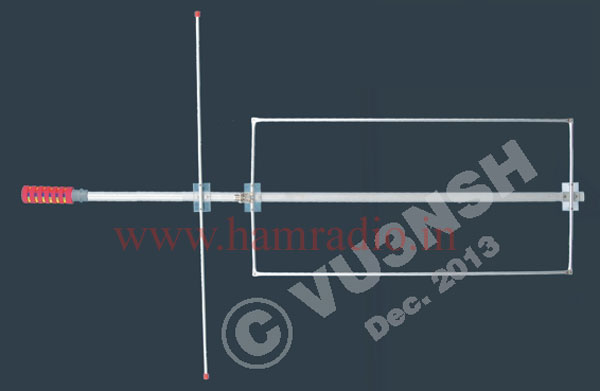
From Russia with Love
Dec 21, 2013
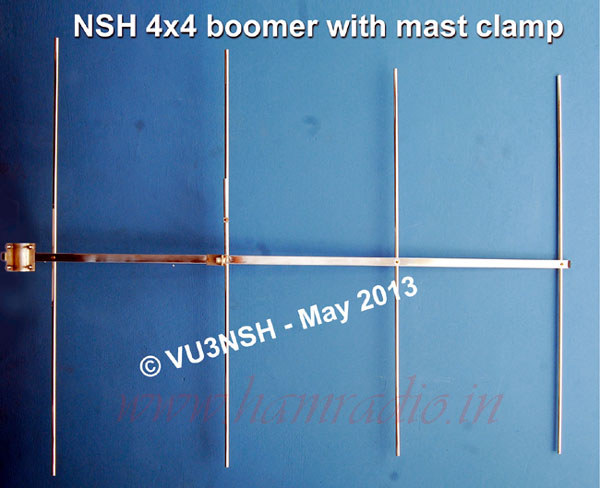
NSH 4 x 4 Boomer
Sep 22, 2013
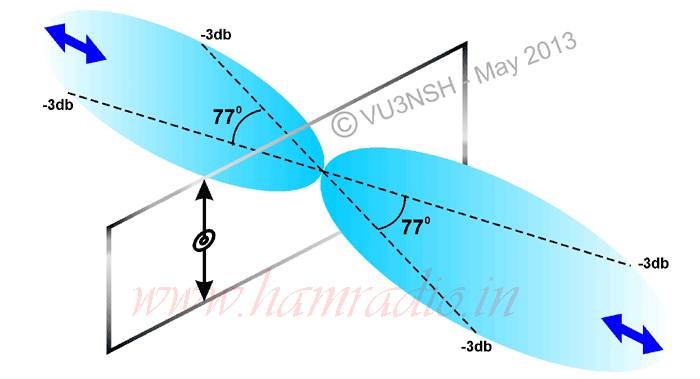
Hentenna - An ADR Antenna
Sep 22, 2013
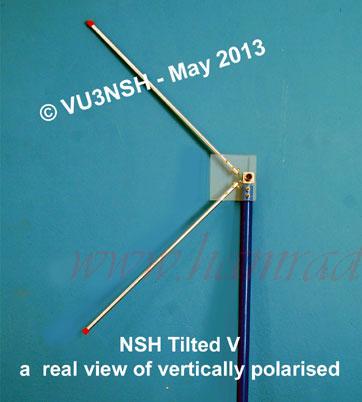
NSH - Tilted V
Sep 22, 2013
